Truth matters: Western journalists quit jobs, refuse to peddle lies on Gaza war
Fateme Torkashvand
The Israeli regime’s genocidal campaign in the besieged Gaza Strip has divided newsrooms in the West into those brazenly willing to peddle lies and those unwilling to compromise on their principles and journalistic ethics.
Some journalists working with Western media outlets have in recent weeks been forced to resign while some others have chosen not to collaborate with their news organizations in covering up the truth about what’s unfolding in Gaza.
Earlier this week, Pulitzer Prize-winning poet, essayist, and poetry editor of the New York Times Magazine, Anne Boyer, resigned from her post in protest against the unfair and lopsided coverage of the Israeli regime’s war on Gaza.
“The Israeli state’s US-backed war against the people of Gaza is not a war for anyone. There is no safety in it or from it, not for Israel, not for the United States or Europe,” she wrote in her resignation letter, adding that wars have no profit but for “oil interests and weapon manufacturers”.
Days before Boyer’s resignation, the other New York Times Magazine staff writer Jazmine Hughes and contributing writer Jamie Lauren Keiles called it quits after joining the Writers Against the War on Gaza (WAWOG) coalition, which was considered a violation of newsroom policies.
The coalition, which is modeled on an organization founded in 1965 named the American Writers Against the Vietnam War, has been vocal in its support for Palestine and invites writers, editors, and others to unite against the war on Gaza.
“Israel’s war against Gaza is an attempt to conduct genocide against the Palestinian people. This war did not begin on October 7th,” the WAWOG wrote in a statement.
“However, in the last 19 days, the Israeli military has killed over 6,500 Palestinians, including more than 2,500 children, and wounded over 17,000. Gaza is the world’s largest open-air prison: its 2 million residents—a majority of whom are refugees, descendants of those whose land was stolen in 1948—have been deprived of basic human rights since the blockade in 2006.”
Signing the statement has proved costly for many journalists, such as Hughes.
“I don’t want to speak about particular ways that it was covered by The New York Times, but just in general, I felt as if I wanted to be part of this conversation that really held the industry itself to a particular standard,” Hughes was quoted as saying by independent media outlet Democracy Now.
“And also, I felt personally implicated as a taxpaying American, and I wanted to hold myself accountable for these sorts of things. With regard to the Times’s coverage, I — actually, no, I didn’t have anything particular about the Times’s coverage.”
While the mainstream media corporations have dubbed any opposition to the Israeli genocide in Gaza as a “violation of newsroom policies”, their staff and journalists are grappling with ethical questions about how they can work with big lies.
“First and foremost, I signed the letter as a person. I feel like growing up as a Jew in America, you’re asked all the time, “What would people do if there was another Holocaust?” And for me, it was just really important to say this is the time when you’re supposed to speak up. Like, this is the moment that you’ve been hypothetically asked about your entire life” Keiles told Democracy Now.
“It’s like critical thinking skills that journalists would be expected to apply to any other situation — right? — and stuff like providing historical context or thinking about, like, the semantics of power within certain language that’s chosen, even things like the Times naming their vertical the “Israel-Hamas war” versus perhaps like the “Israel-Palestine war” or the “Israel-Gaza war,” right? There are all these choices that are being made”.
As Boyer pointed out in her resignation letter, it’s a question of to be or not to be.
“It is the ongoing devastation of the people of Palestine, people who have resisted throughout decades of occupation, forced dislocation, deprivation, surveillance, siege, imprisonment, and torture. Because our status quo is self-expression, sometimes all artists have left is to refuse,” the journalist wrote.
“So, I refuse. I won't write about poetry alongside the "reasonable" tones of those who aim to acclimatize us to unreasonable suffering. No more ghoulish euphemisms. No more sanitized hell-worlds. No more warmongering lies.”
Several other journalists have also resigned or been forced to resign for refusing to amplify lies peddled by the corporate Western media about the Israeli regime’s war against Palestinians.
Last month, three Tunisian journalists resigned from their jobs at Western media organizations in protest of their coverage of the Gaza war.
"Since 7 October, I and my Tunisian colleague and friend Amani Oueslati decided to resign from Canal+," Tunisian journalist Achouak Hannachi wrote on Facebook on October 18.
"Our craftsmanship, our education, and our support for the Palestinian cause are not for compromise," she hastened to add.
Oueslati worked with the French television channel Canal+ channel while Hannachi worked with another French news channel Cnew.
Their resignations came hours after BBC correspondent in North Africa, Bassem Bounneni, announced that he was quitting his job.
"This morning, I submitted my resignation from the British Broadcasting Corporation, BBC, for the sake of my professional conscience," Bounneni wrote in Arabic on the X platform.
"Have you thought of what it might cost? I've thought of the humiliation if we just tamely submit, knuckle under and crawl.”
Earlier this month, in an open letter, hundreds of international journalists demanded an end to Israel's killing of Palestinians in Gaza, especially journalists, and called on Western newsrooms to call Israeli crimes for what they are — "apartheid, ethnic cleansing, and genocide.”
"The urgency of this moment cannot be overstated. It is imperative that we change course,” reads the open letter.
"We are writing to urge an end to violence against journalists in Gaza and to call on Western newsroom leaders to be clear-eyed in coverage of Israel's repeated atrocities against Palestinians.”
Fateme Torkashvand is a Tehran-based journalist.
Former Trump adviser Bannon plotted with Epstein to 'take down' Pope Francis
China warns US against ‘plotting’ on Taiwan, says it risks confrontation
VIDEO | Zionist takeover of UK police
VIDEO | Trump-Netanyahu meeting
Iran’s shortest rail route between China and Europe
'Shameful': Hamas decries Western systemic campaign against UN expert Albanese
Ethics in suspension: Epsteinization of power in today’s post-shame politics
Trump knows he cannot use military force to press Iran into accepting Israeli demands: Mearsheimer


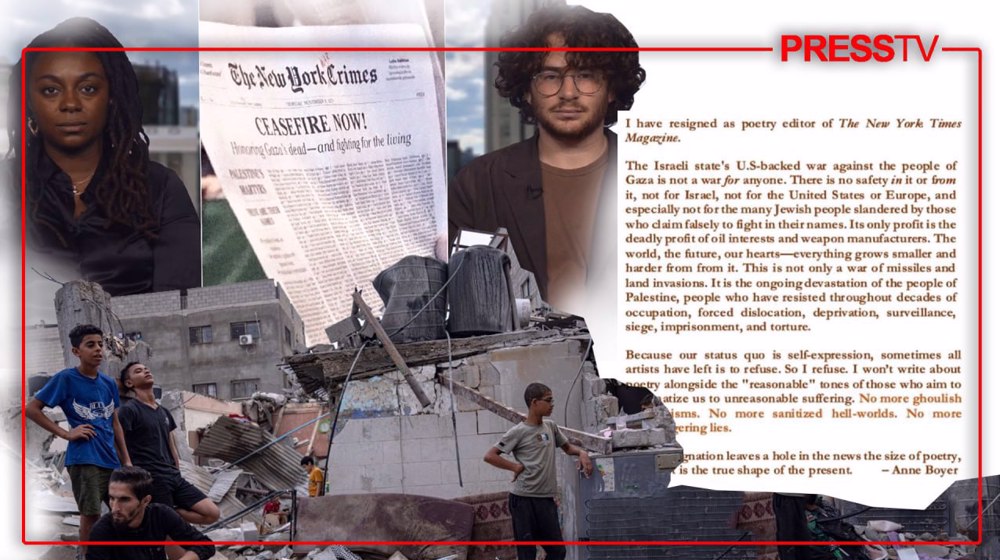
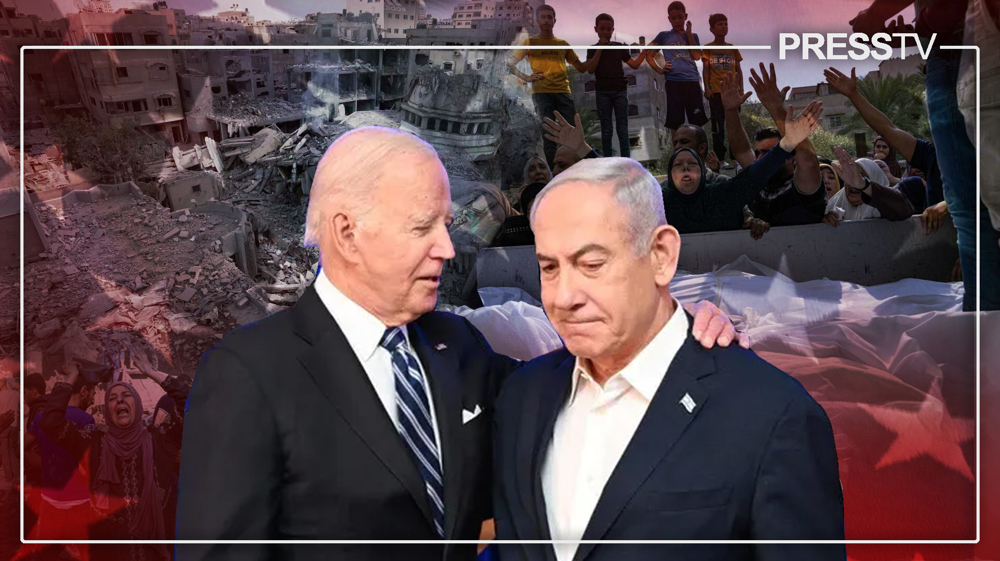
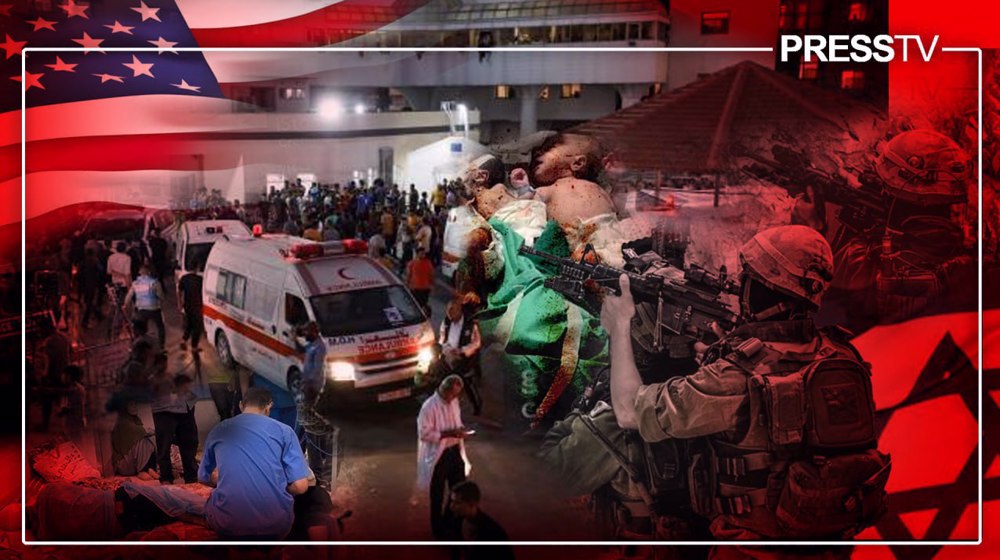
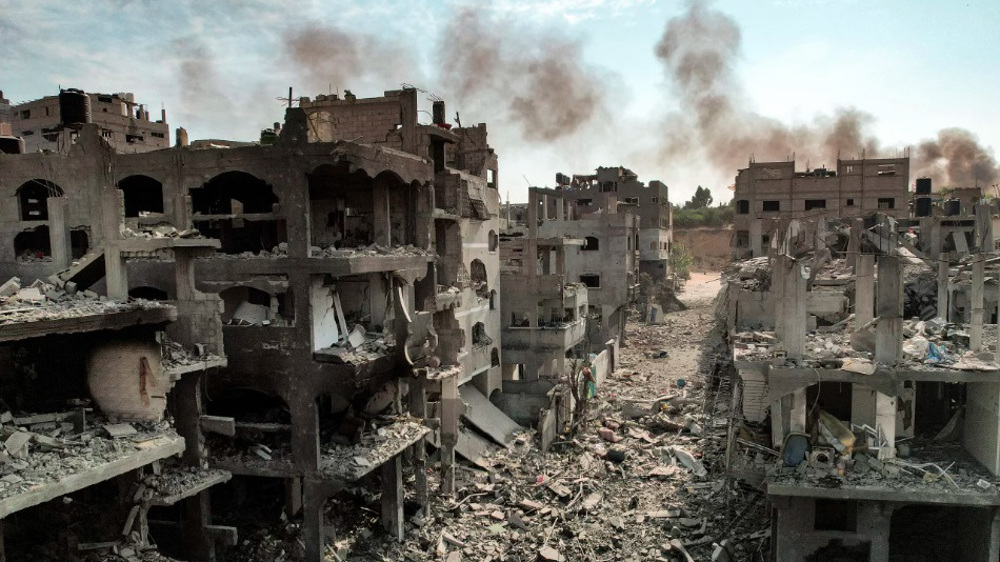

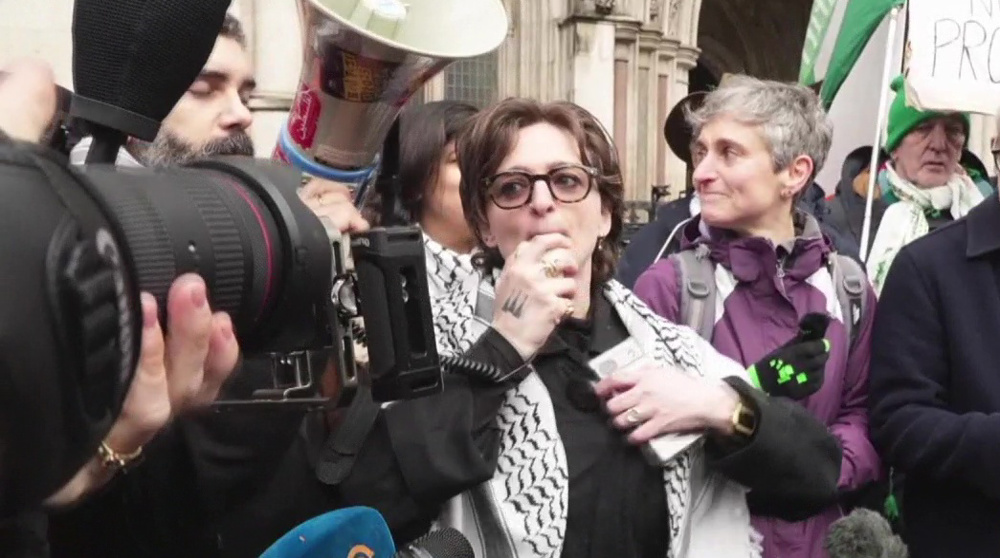



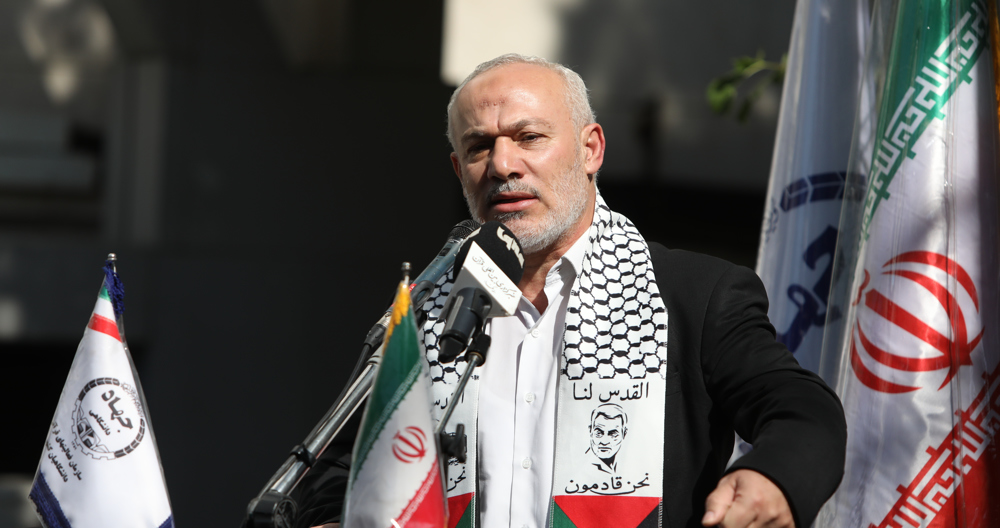
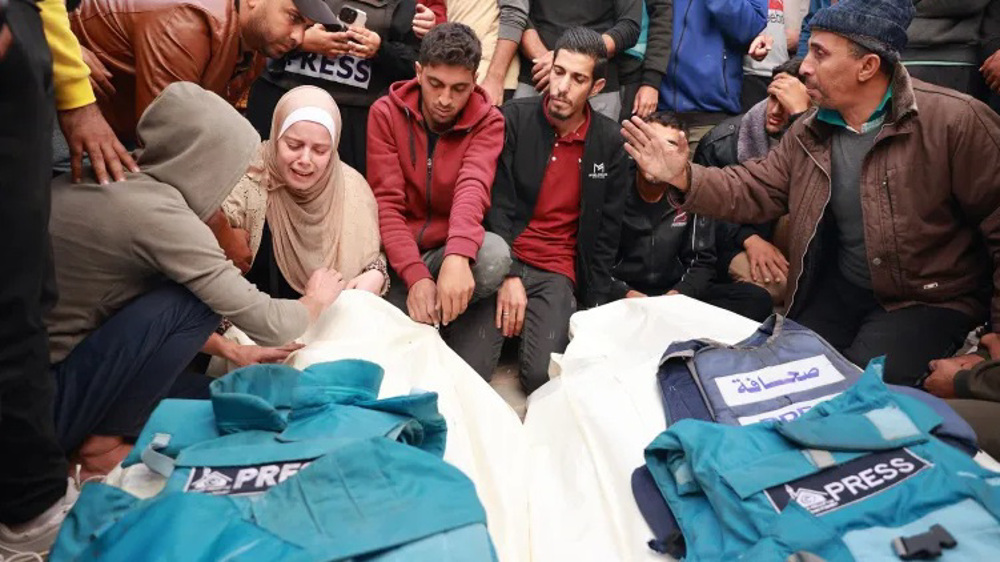
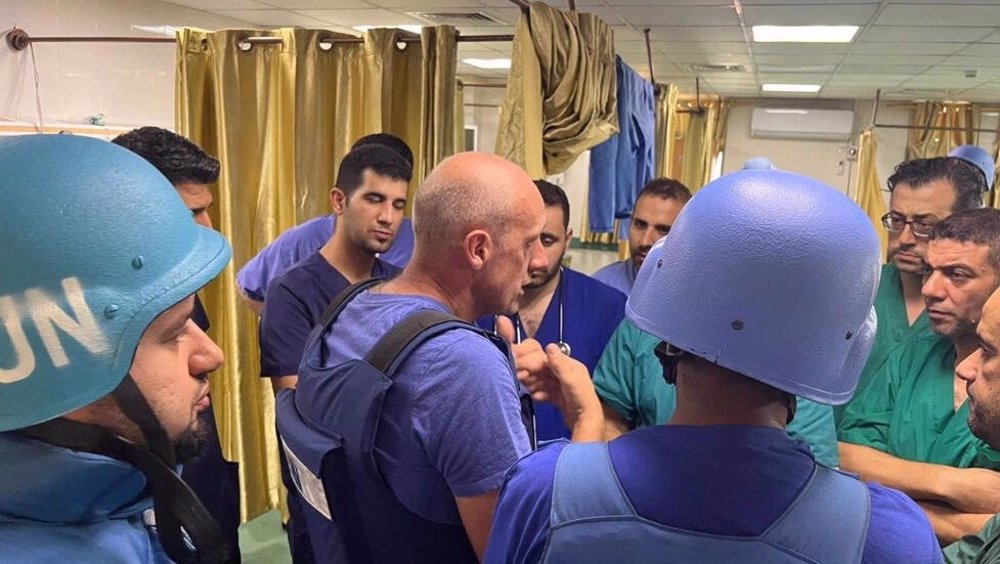
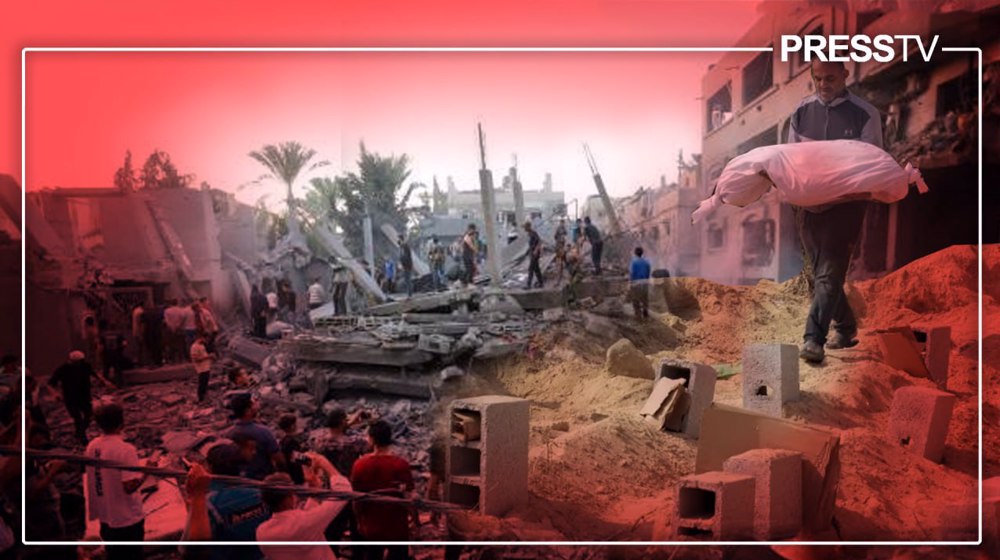
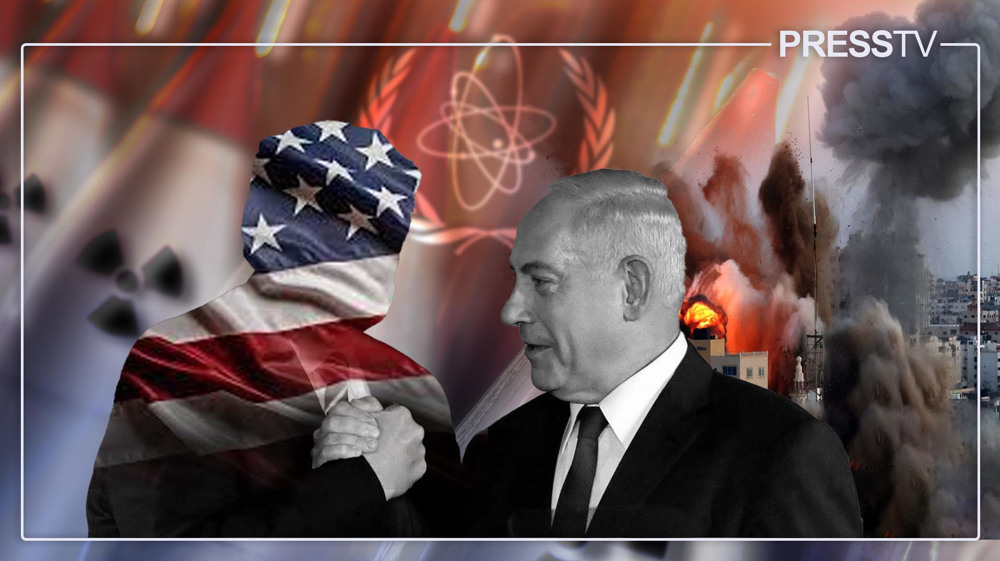

 This makes it easy to access the Press TV website
This makes it easy to access the Press TV website